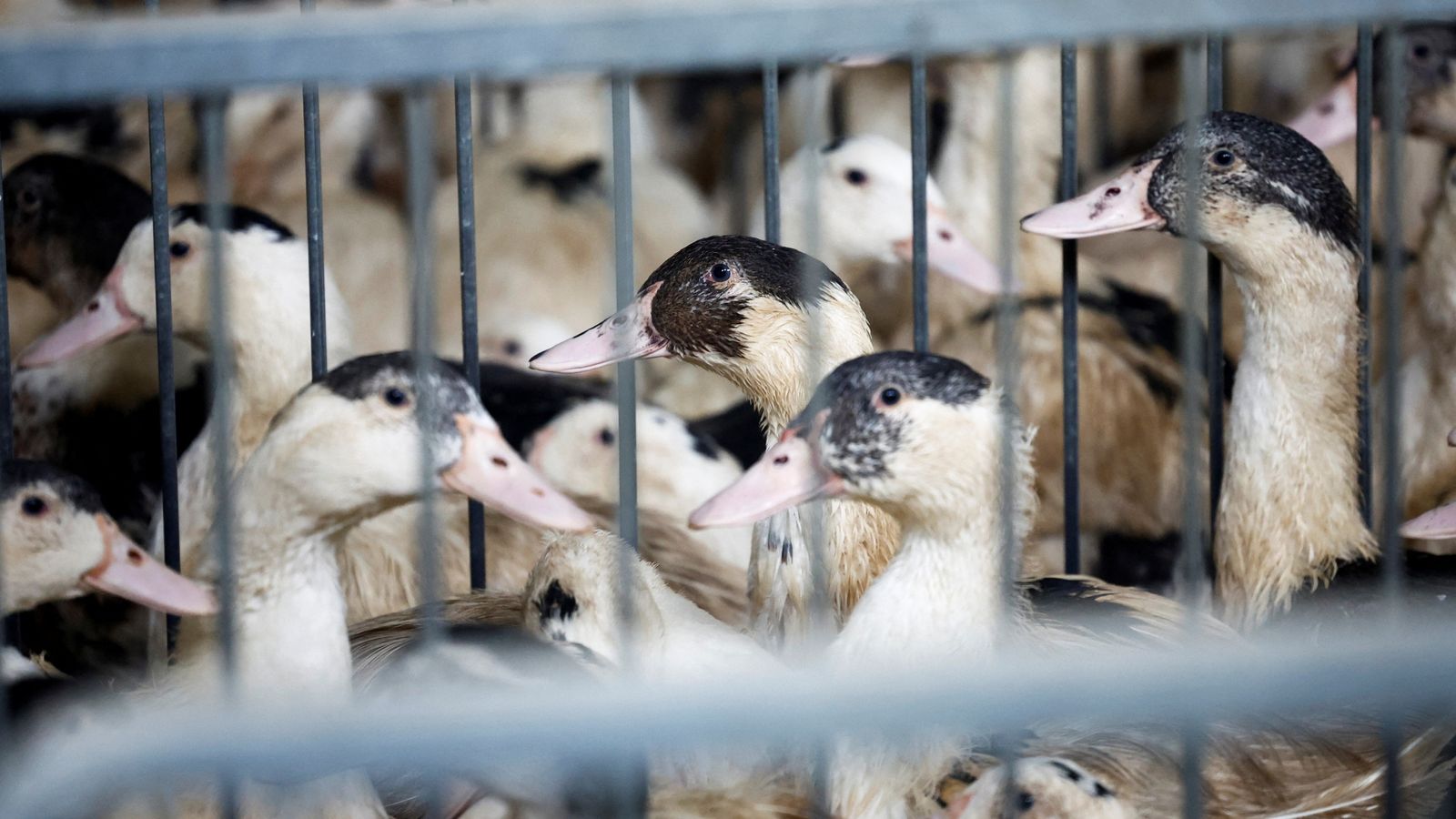On Tuesday, Paris raised the risk level of bird flu to high after new cases were detected, forcing poultry farms to keep their livestock indoors.
By Dylan Donnelly, news reporter
France has ordered a third round of bird flu vaccines for at-risk ducks.
Citing “new scientific evidence”, France’s farm ministry said on Wednesday that the shots are to avoid a surge in outbreaks.
On Tuesday, Paris raised the risk level of bird flu to high after new cases were detected, forcing poultry farms to keep their livestock indoors.
“New scientific evidence has led us to adjust the vaccination protocol to guarantee the best possible protection of animals and avoid any epizootic outbreak,” the ministry said in a statement.
“For this, a three-dose protocol will be applied … until March 15, 2024 in areas identified at risk and targeting mulard ducks.”
Mulard ducks, a hybrid between two different domestic ducks, are used for meat and controversially for foie gras.
Paris began rolling out its duck vaccination programme early in October, with a total of 60 million ducks over a year initially set to receive two doses.
Germany’s Boehringer Ingelheim, selected by France to produce the vaccine, said the decision on a third shot was taken after post-shot monitoring showed a high potential for transmission of bird flu circulating and a reduction in the immunity of ducks at 11 weeks of life.
Read more from Sky News:
France votes to ban disposable vapes
‘Significant’ discovery in fight against bird flu
Doriane Vadot, head of communications for Boehringer France, said: “Given the unprecedented nature of the current campaign, it is normal for the vaccination strategy to be refined as field monitoring and additional research work are carried out.”
Four outbreaks of highly pathogenic avian influenza, commonly called bird flu, have been detected since 27 November.
These included three in Brittany in western France and one in the Somme in northern France, the farm ministry said.
These were all on turkey farms. There has been no outbreak reported among ducks so far.
By 19 November, 6.9 million ducks had received a first shot of bird flu vaccine and 3.6 million had received two.
While bird flu is harmless in food, its spread is a concern over the devastation it can cause to flocks and a risk of human transmission.
It comes as NatureScot, part of the Scottish Government, said guillemots, kittiwakes and terns in Scotland suffered “huge losses” at their breeding colonies this summer due to avian flu.
The nature agency said it had received 9,610 reports of dead and sick wild birds across the nation between 3 April and 1 October this year.

Sarah Carter is a health and wellness expert residing in the UK. With a background in healthcare, she offers evidence-based advice on fitness, nutrition, and mental well-being, promoting healthier living for readers.








